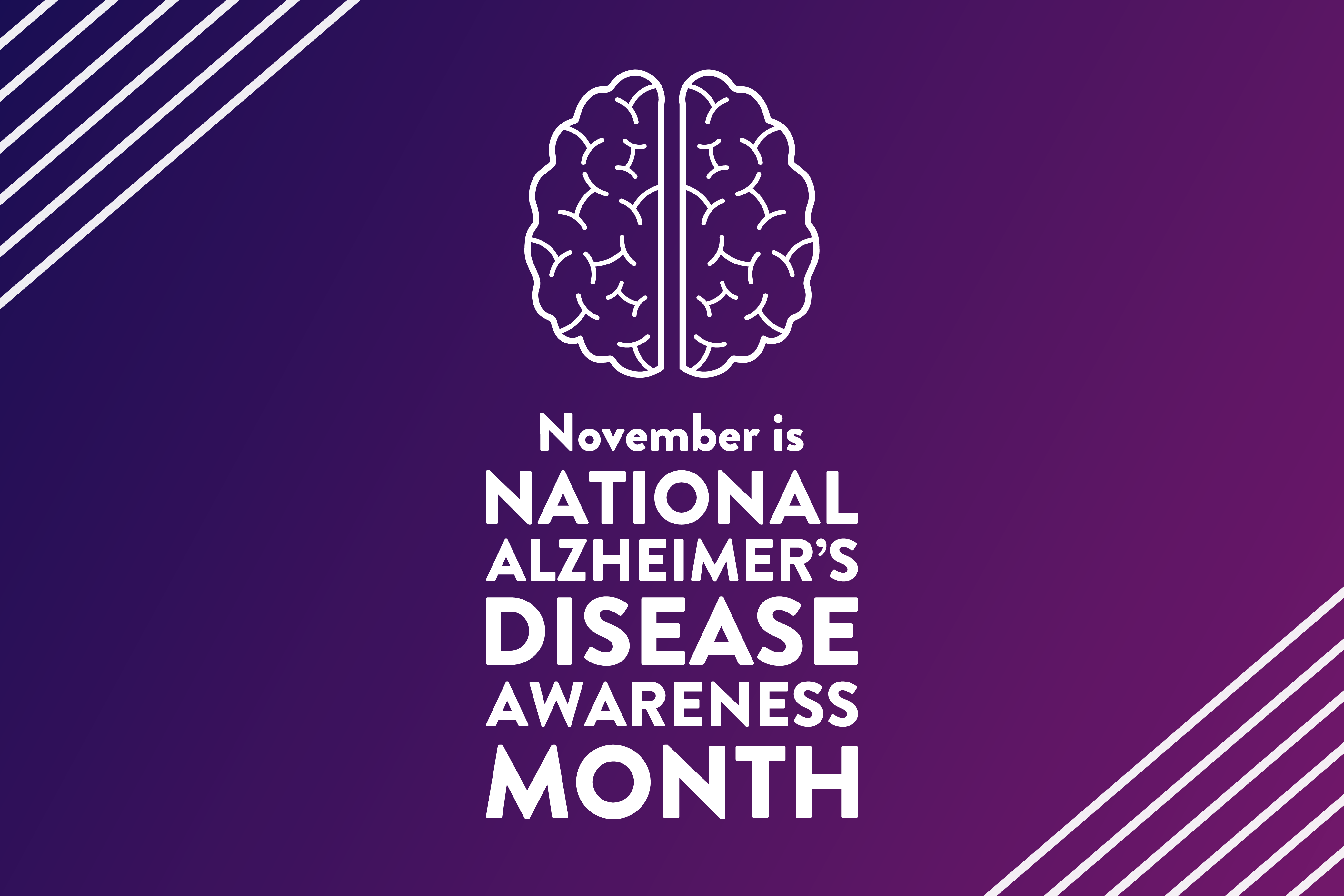President Ronald Reagan established November as National Alzheimer’s Disease Awareness Month in 1983. The Proclamation states in part: “Alzheimer’s disease, a devastating disease that affects the cells of the brain, is now regarded as the major form of old age “senility.” While experts formerly believed that Alzheimer’s occurred only in persons under 65, it now is recognized as the most common cause of severe intellectual impairment in older individuals. Presently, there is no established treatment that can cure, reverse or stop the progression of this disease, which is the cause of serious confusion and forgetfulness in about 1.5-2.5 million elderly persons in the United States.” The sad truth is that there is still no treatment that can cure or stop the progressive disease. And the Alzheimer’s Association reports that there are now over 6 million Americans suffering with the disease. No doubt, President Reagan thought that the proclamation would be his lasting legacy in the fight against Alzheimer’s disease. However, in November 1994 President Reagan announced that he had been diagnosed with Alzheimer’s disease ultimately dying from the disease in 2004. His personal revelation and battle with the disease did much to shine a light on a terrible, destructive disease.
The battle against Alzheimer’s disease is ongoing. On January 4, 2011 the National Alzheimer’s Project Act (NAPA) became law with the support of President Barak Obama. The purpose of NAPA was clearly defined for the Secretary of Health and Human Services and five goals were developed:
- Prevent and effectively treat Alzheimer’s disease and related dementia by 2025
- Optimize Care Quality and Efficiency
- Expand Supports for People with Alzheimer’s Disease and Their Families.
- Enhance Public Awareness and Engagement.
- Track Progress and Drive Improvement.
The Department of Health and Human Services publishes annual updates to the plan and the latest update from December 2020 indicated an ongoing, focused effort to attain these goals. The update can be referenced at National Plan to Address Alzheimer’s Disease: 2020 Update (hhs.gov).
Alzheimer’s disease was first identified in 1906 by a German physician Alois Alzheimer and described as memory loss, unusual behavior, and brain shrinkage. A psychiatrist named the disease after Alzheimer and published the first description in a 1910 medical book. Alzheimer’s is a form of dementia – a group of symptoms that affects the memory, thinking and daily life of those suffering with it. Dementia, of any kind, is not a normal process of aging. Some types of dementia are related to physical conditions or deficiencies that can be reversed. Other types of dementia such as vascular dementia, Lewy Body dementia which includes Parkinson’s-related dementia, alcohol-related dementia and Alzheimer’s disease are not reversable and are progressive.
Everyone presents symptoms of dementia differently, but there are some common indicators of Alzheimer’s disease. The Alzheimer’s Association lists these 10 Early Signs and Symptoms of Alzheimer’s Disease:
- Memory Loss that disrupts daily life.
- Challenges in planning or solving problems.
- Difficulty completing familiar tasks.
- Confusion with time or place.
- Trouble understanding visual images or spatial relationships.
- New problems with words in speaking or writing.
- Misplacing things and losing the ability to retrace steps.
- Decreased or poor judgement.
- Withdrawal from work or social activities.
- Changes in mood or personality.
As a progressive disease, some treatments may slow the progression, but it cannot be stopped or reversed. Typically, during the Early Stage, people continue to function with some forgetfulness and memory lapses and may develop compensating techniques. Close family and friends may notice changes. During the Middle Stage, which can often last for years, changes become more evident including communication challenges in finding the right words, frustration and moodiness, and physical changes in sleep patterns and toileting. Wandering is often a difficult behavior to manage at this stage. The Late Stage robs people of most all meaningful communication and physical functions. Individuals need constant and supportive care.
Alzheimer’s disease steals memories and abilities affecting not only the victim, but also the family and friends. Understanding the disease is the first step in understanding the victim of Alzheimer’s. There is help for victims and those who care for them. Many organizations have information, support groups and help; the Alzheimer’s Association and the Alzheimer’s Foundation of America are two places to start.
Behavioral Health Solutions has professionals that can help too. Psychiatrists, psychotherapists, and neuropsychologists can help the victim of Alzheimer’s and those who care for them. Getting support early from professionals can help guide people through the psychological and cognitive impact of the disease.
Call BHS today: 702-608-1976

